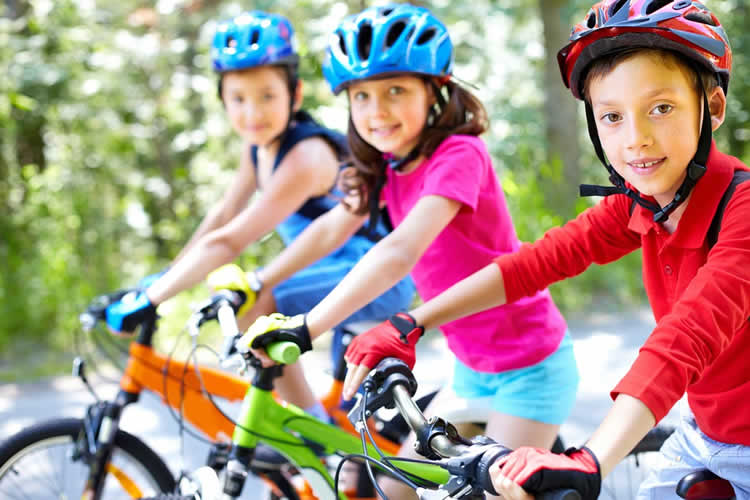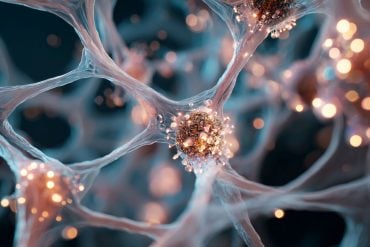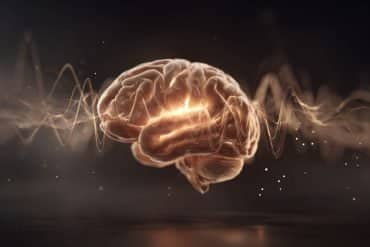Summary: Researchers report the reason many shun away from physical activity as adults may be rooted in childhood experience. The study reveals negative memories associated with PE classes during childhood may generate negative response to participating in exercise as adults.
Source: Iowa State University.
Even though we know the benefits of physical activity, many of us would rather watch TV than exercise. The reason we avoid working out may stem from our childhood experiences.
Iowa State University researchers are working to understand how the emotional connection we develop with physical activity as children influences attitudes and behaviors throughout our lifetime. Kinesiology Professor Panteleimon “Paddy” Ekkekakis and graduate student Matthew Ladwig suspect our prefrontal cortex, which regulates emotions, plays a significant role.
As adults, this region of the brain helps us push to our maximum effort and manage how we feel during exercise, researchers said. Since the prefrontal cortex is not fully developed until early adulthood, as children it may be harder to control our emotions, especially when exercise is hard or unpleasant.
“If children cannot regulate displeasure, they’ll give up and start to have negative feelings about exercise,” Ekkekakis said. “Over time, just the idea of physical activity will activate an inherent urge to avoid it.”
To demonstrate how children respond during exercise, Ekkekakis and Ladwig are conducting a research trial to measure children’s brain activity, exertion and indicators of pleasure while riding an exercise bike. Researchers are recruiting children, ages 7 to 9, for the trial. Ladwig says a computer will gradually increase the bike’s intensity to push participants to maximum effort.
Negative memories of gym class
It will take several months to collect and analyze data from the lab. Ekkekakis says the results will demonstrate whether children have the cognitive infrastructure to push to their full potential or if they will simply give up. The researchers also will look at psychological indicators to determine if children experience pleasure or displeasure throughout the experiment.
The work builds upon research by Ekkekakis, Ladwig and Spyridoula Vazou, an associate professor of kinesiology, which found a link between childhood memories of physical education classes, either positive or negative, and attitudes about physical activity and sedentary behavior as adults. They saw an increase in negative memories starting in sixth grade and peaking throughout middle school, which corresponds with a period marked by a dramatic decrease in physical activity for adolescents. The research, published in the Translational Journal of the American College of Sports Medicine, included survey responses from more than 1,000 participants across the U.S.

“Knowing those negative memories from gym class stick with us into adulthood can help us understand why some people chose sedentary behavior over physical activity,” Ladwig said. “If we can find a way to make movement more pleasant, we think that may be key to getting people off the couch.”
Measure enjoyment, not fitness
Many of the worst memories reported in the survey were associated with fitness testing. The researchers identified several common themes in the responses, ranging from embarrassment to bullying to anxiety about body image. To foster more positive experiences for children, Ekkekakis and Ladwig say we need to promote movement that is enjoyable and focus less on measurements of fitness and skill. They suggest designing fitness tests and PE activities that fit with children’s natural movement patterns.
“Children move intermittently with brief bursts of intense physical activity. Playing tag is one example,” Ladwig said. “If activities are less structured and more natural for children, it may improve outcomes for enjoyment.”
If children feel good about physical activity, it will help establish a lifelong habit, Ekkekakis said. He and Ladwig hope data from their research trial offers new insight on appropriate ways to design and conduct fitness tests. Ekkekakis says asking children to push to their maximum ability on these tests may unavoidably lead to poor experiences and memories.
“By subjecting children to physical fitness tests, we are making them feel bad when they don’t have the biological machinery required to regulate those bad feelings,” Ekkekakis said. “If promoting fitness and skill creates an unpleasant experience for a large percentage of children, we need to look very critically at that situation and consider what can be changed.”
Source: Panteleimon ‘Paddy’ Ekkekakis – Iowa State University
Publisher: Organized by NeuroscienceNews.com.
Image Source: NeuroscienceNews.com image is in the public domain.
Video Source: Video credited to ISUNewsService.
Original Research: Open access research for ““My Best Memory Is When I Was Done with It”: PE Memories Are Associated with Adult Sedentary Behavior” by Ladwig, Matthew A.; Vazou, Spyridoula; and Ekkekakis, Panteleimon in Translational Journal of the American College of Sports Medicine. Published August 15 2018.
doi:10.1249/TJX.0000000000000067
[cbtabs][cbtab title=”MLA”]Iowa State University”How Cognitive Development Shapes Attitudes About Physical Activity.” NeuroscienceNews. NeuroscienceNews, 10 October 2018.
<https://neurosciencenews.com/cognitive-development-physical-activity-9995/>.[/cbtab][cbtab title=”APA”]Iowa State University(2018, October 10). How Cognitive Development Shapes Attitudes About Physical Activity. NeuroscienceNews. Retrieved October 10, 2018 from https://neurosciencenews.com/cognitive-development-physical-activity-9995/[/cbtab][cbtab title=”Chicago”]Iowa State University”How Cognitive Development Shapes Attitudes About Physical Activity.” https://neurosciencenews.com/cognitive-development-physical-activity-9995/ (accessed October 10, 2018).[/cbtab][/cbtabs]
Abstract
“My Best Memory Is When I Was Done with It”: PE Memories Are Associated with Adult Sedentary Behavior
The transition from childhood to adolescence is marked by a dramatic decrease in physical activity (PA). Physical education (PE) experiences may contribute to this change but remain underresearched. Using a retrospective survey, we examined whether memories of enjoyment or nonenjoyment of PE relate to present-day (adult) attitudes, intentions, PA, and sedentary behavior. An online questionnaire was completed by 1028 American respondents (18–45 yr). The participants rated their retrospective enjoyment of PE, present attitudes and intentions for PA, as well as present PA and sedentary behavior. In addition, participants responded with their best and worst PE memories in an open-ended fashion. Retrospective enjoyment of PE was associated with present-day attitude (r = 0.37, P < 0.00001) and intention (r = 0.23, P < 0.00001) for PA, as well as negatively associated with sedentary time on the weekend (r = −0.14, P < 0.00001). The best memories related to enjoyment of the activities in class (56%), experiencing feelings of physical competence (37%), and, interestingly, 7% were not having to take PE class any longer or skipping the class. Of the worst memories, 34% related to embarrassment, 18% to lack of enjoyment, 17% to bullying, 14% to social–physique anxiety, 16% to injury, and 2% to being punished by the PE teacher. Childhood memories of PE are associated with PA attitude, intention, and sedentary behavior in adulthood. Intensified research efforts should be directed toward understanding the factors and processes that lead to the formation of memories of PE.






